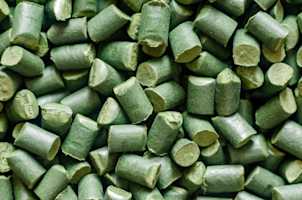Ida Tarko
MSc (Tech.) in Chemical Engineering
Polymers & Plastics

Ida Tarko is a polymer testing expert at Measurlabs, coordinating customer projects on barrier properties, biodegradability, thermal behavior, and other key characteristics of polymers and organic materials.
Ida holds an MSc in Chemical and Process Engineering from Åbo Akademi University, where she specialized in bioproduct technology and advanced materials. Before joining Measurlabs, she completed her master’s thesis at Bayer and gained experience in the company’s R&D and quality control departments.
Ida’s latest articles in our blog
Comparison of thermal analysis techniques used in material characterization
Several techniques, such as DSC, TGA and TMA, can be used for thermal analysis. The choice depends on the studied properties, temperature range and sample type.
Keep reading >
Biodegradability and compostability testing by national and international standards
Companies should provide evidence, such as third-party laboratory test results, for biodegradability and compostability-related product claims.
Keep reading >
